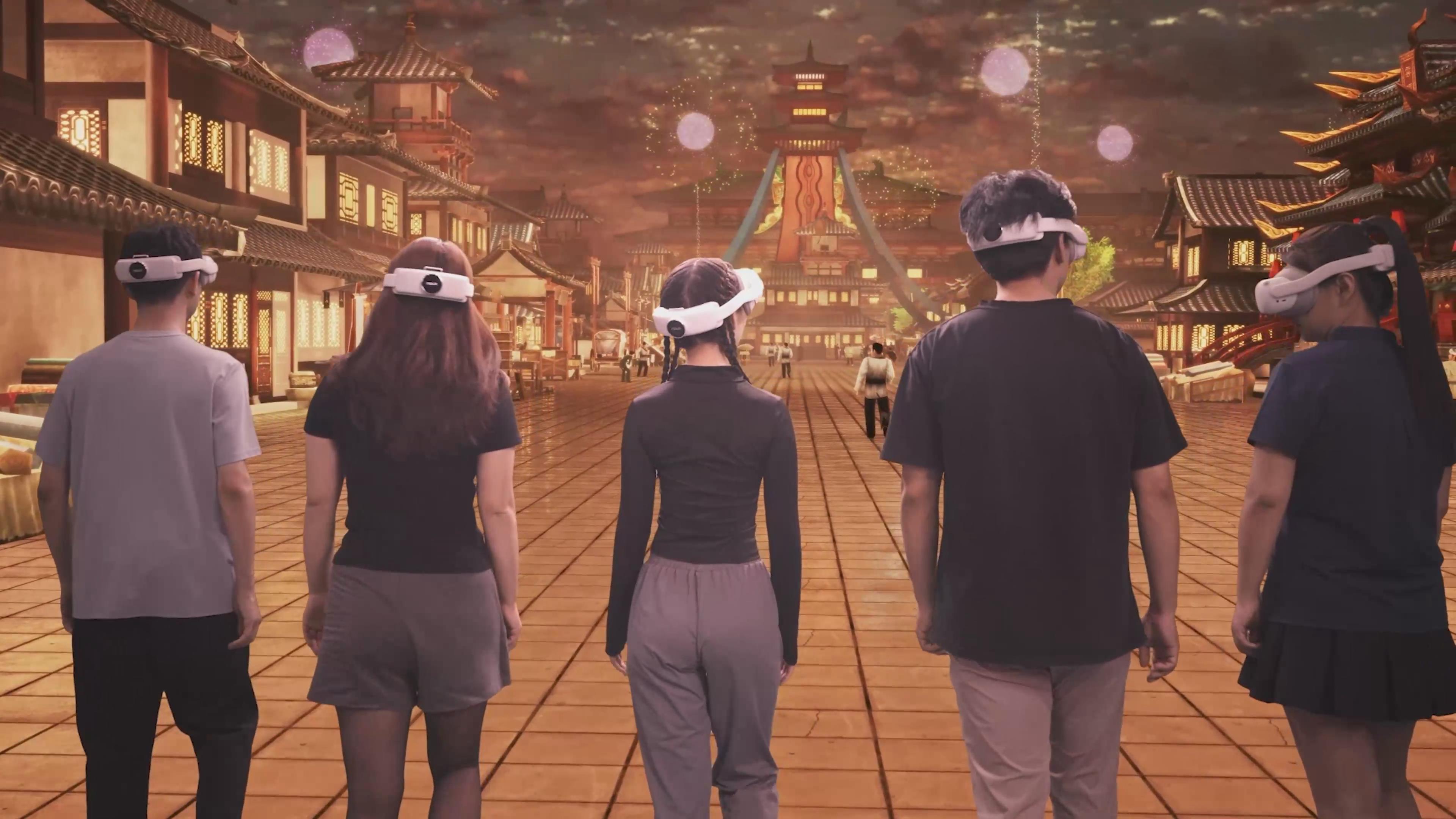 Bridging News
Bridging News
AI Revolutionizes Cultural Tourism: Bringing China's Heritage to Life
Chongqing—The finale of China's first national AI + Cultural Tourism competition recently concluded in Chongqing's Liangjiang New Area. Shi Lin, Director of the Security and Metaverse Department at the China Academy of Information and Communications Technology (CAICT), highlighted that AI's application in cultural tourism drives innovation and offers significant cultural and industrial benefits.
 The press conference of the AI + Cultural Tourism competition. (Photo/"Ingenuity Cup" National Artificial Intelligence Innovation Application Competition)
The press conference of the AI + Cultural Tourism competition. (Photo/"Ingenuity Cup" National Artificial Intelligence Innovation Application Competition)
The competition focuses on integrating AI and cultural tourism to boost China's tourism development. It has attracted over 120 teams nationwide and covers topics like immersive real-world experiences and VR simulation theaters.
Among them, the Funtasy VR project, developed by Shanghai Siye Technology Co. Ltd., is a large-scale VR theater where participants shape the storyline, creating an immersive experience, said CEO Ma Shixuan.
Ma said that developing such immersive VR projects requires substantial time and manpower, comparable to producing films or games.
"To enhance production efficiency, we utilized AI throughout the entire creative process—from crafting the storyline and world-building in the early stages to designing VR environments and models in later stages," Ma added.
 The VR equipment was used in some AI + Cultural Tourism competition entries. (Photo/"Ingenuity Cup" National Artificial Intelligence Innovation Application Competition)
The VR equipment was used in some AI + Cultural Tourism competition entries. (Photo/"Ingenuity Cup" National Artificial Intelligence Innovation Application Competition)
Zhang Xu, a Chongqing University of Posts and Telecommunications professor, said AI reduces the cost and time of creating cultural tourism content while enhancing immersive experiences.
Zhang added that as AIGC advances, technologies like Mixed Reality (MR) transform how tourists engage with cultural attractions, allowing them to experience virtual environments seamlessly integrated into the physical world without needing wearable devices.
One project uses MR technology for immersive 3D shooting, blending virtual targets with the real environment. Shooters can switch between virtual and real worlds, instantly sensing hit effects and adjusting strategies.
Zhang also emphasized that AI is crucial to MR technology. It automates the creation of 3D models and virtual scenes and enables real-time motion and body tracking. AI synchronizes effects with users' movements by working with sensors and lighting to create a seamless, immersive experience.
 Users can immerse themselves in the style and atmosphere of the Tang Dynasty through VR devices. (Photo/"Ingenuity Cup" National Artificial Intelligence Innovation Application Competition)
Users can immerse themselves in the style and atmosphere of the Tang Dynasty through VR devices. (Photo/"Ingenuity Cup" National Artificial Intelligence Innovation Application Competition)
AI has great potential in promoting Chinese culture globally and attracting international tourists. Lu Yun, Product Manager of Volcengine Video Cloud and Cloud XR, emphasized that AI provides a more efficient way to showcase the depth of traditional Chinese culture.
AI enhances the presentation of ancient architecture and intangible cultural heritage by enabling high-resolution scans, interactive features, and immersive experiences. Lu noted that Game Science, the developer of Black Myth: Wukong, used AI technology to precisely scan and digitally recreate Shanxi's cultural landmarks.
Lu added that Game Science brings these sites' cultural charm to life through gamiwhich addsding fresh energy to China's cultural tourism attractsting global audiences.
 Related Stories
Related Stories